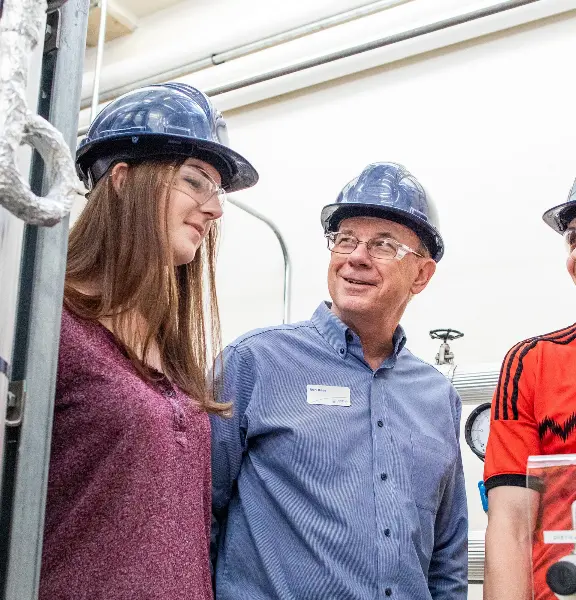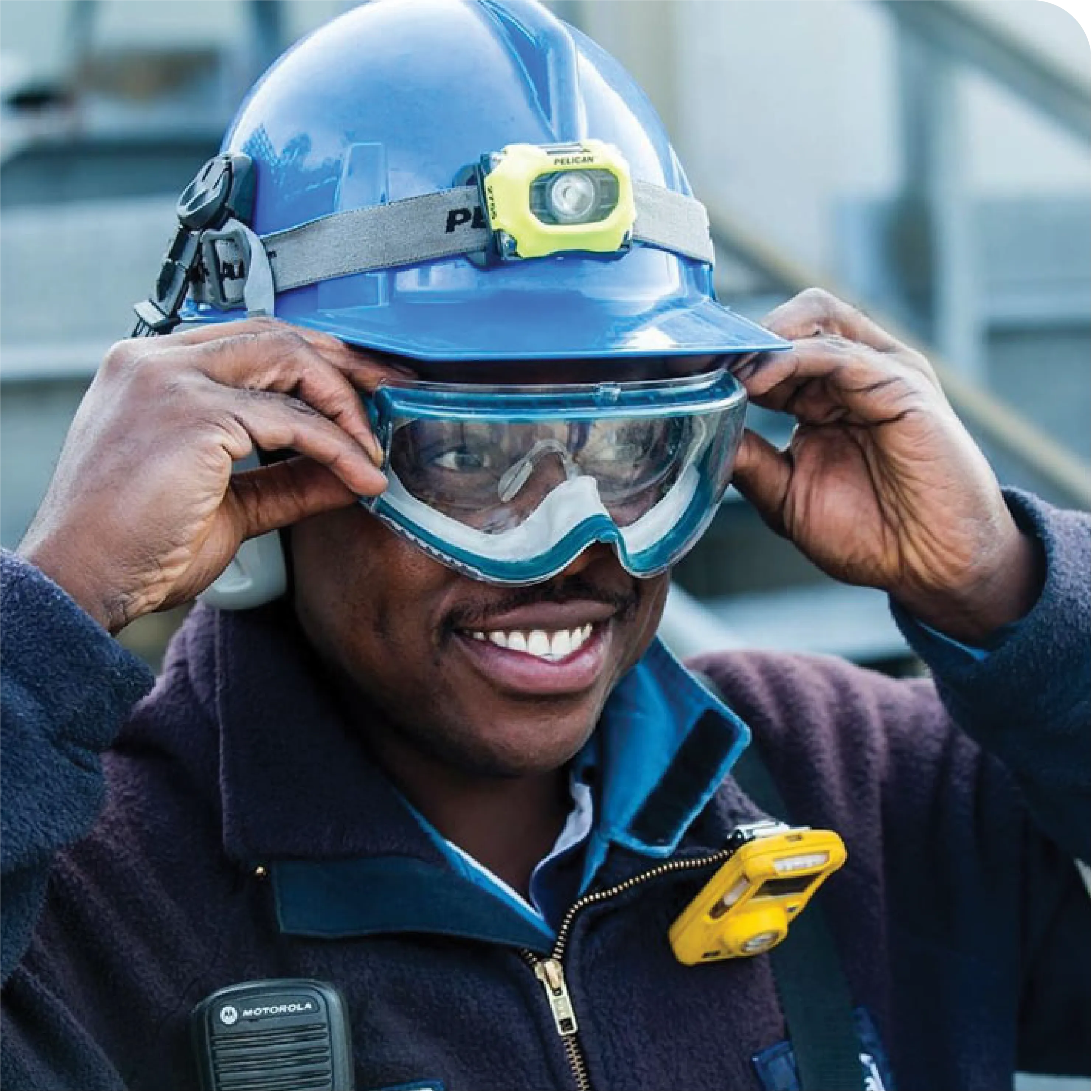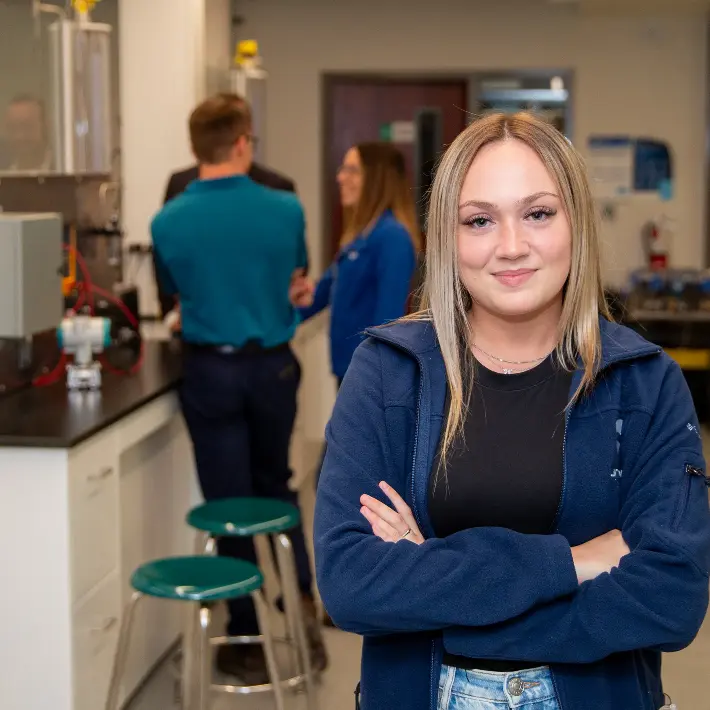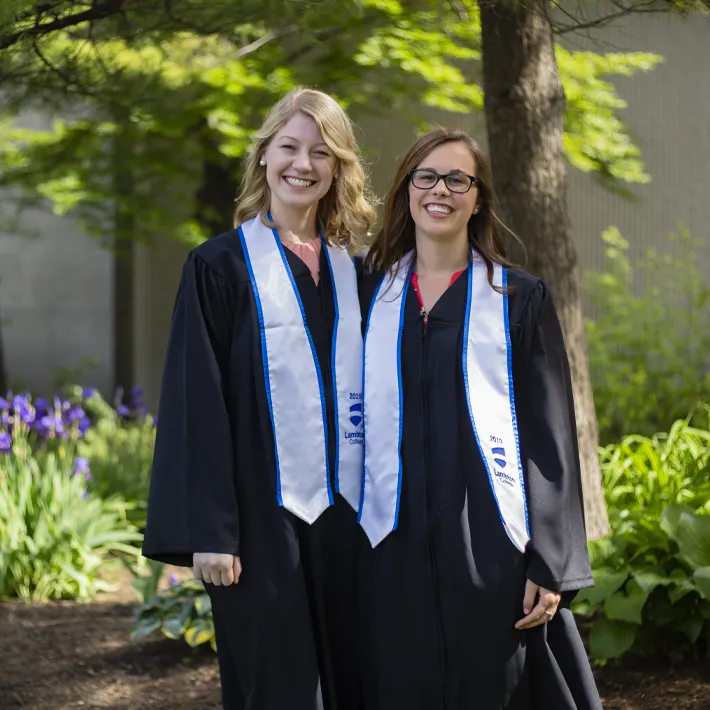

2nd Class Power Engineer Preparation
Overview
Lambton College's 2nd Class Power Engineering Prep offers flexible, career-focused studies to help learners pass certification exams.
The Lambton College 2nd Class Power Engineering Preparation Certificate equips learners with the academic foundation and flexibility needed to confidently challenge the SOPEEC 2nd Class Power Engineer certification exams.
This program is a great fit if you:
- Are a graduate of a 3rd Class Power Engineering program in Canada (not required but recommended)
- Are currently working as a 3rd Class Power Engineer and want to advance your career
- Need a flexible learning format; online (live or asynchronous) or in-person at Lambton College in Sarnia
- Are looking for structured academic support to increase your success in passing the 2nd Class certification exams
Learning Outcomes
By the end of this program, learners will be able to:
- Demonstrate knowledge aligned with the requirements of all six SOPEEC 2nd Class Power Engineering exams
- Apply learned concepts to confidently challenge the 2nd Class certification exams
- Choose and manage a personalized learning schedule, with the ability to study online or in-person
- Benefit from expert instruction and flexible delivery options tailored to working professionals
- Strategically plan course progression in preparation for exam scheduling and future career opportunities
Admission Requirements
O.S.S.D. or equivalent
Costs
Course Fees
- The costs for this program are charged on a per-course basis. Visit the course list below, for exact costs.
Textbooks
Textbook costs may be applicable to each course. Most textbooks can be purchased through textnet.ca, but some exceptions do apply. Some courses may have software or equipment requirements that are not included in the cost of the course and are the responsibility of the student. Please see individual course pages for course-specific textbook information.
Looking at Completing a Diploma?
If you’re looking at completing a diploma while also preparing to challenge the SOPEEC 2nd Class Power Engineer certification exams, you can apply to the third year of the Power Engineering Technology Ontario College Advanced Diploma program.
For more information about the admission requirements and application process, please contact techandtrades@lambtoncollege.ca

Technology Requirements
In order to keep pace with the requirements of each and every course in your program, Lambton College requires that each student have access to a laptop while studying at our college.
Courses
The courses listed can be taken one at a time or learners can register for up to three courses per term. Each course is billed individually.
Fall Term
The Plant Administration and Applied Mechanics course has been designed based on the SOPEEC syllabus to prepare students for TSSA exam 2A-1.
The course aligns with the PanGlobal Power Engineering 2nd Class - A1 textbook and is designed so that students can complete the weekly readings and assignments around their work schedule.
Topics of study include calculations of ASME vessel component thicknesses, reinforcement compensation of openings, firetube boiler components and stays. Applied Mechanics calculations are also covered in areas of statics and dynamics. Students must demonstrate a thorough knowledge of the Act and Regulations, and apply the knowledge to management principles for a typical plant including maintenance and safety administration.
The final exam in this course is modelled on the format and question type of the SOPEEC exam to further help students prepare for the 2A-1 exam.
This course is for 3rd Class Stationary Engineers preparing to take the TSSA 2nd Class Stationary Engineering Qualification. Students are responsible for ensuring they meet TSSA eligibility requirements for challenging the exam.
Please contact us to find out when the next start date will be.
The Advanced Thermodynamics and Material Science course has been designed based on the SOPEEC syllabus to prepare students for TSSA exam 2A-2.
The course aligns with the PanGlobal Power Engineering 2nd Class - A2 textbook and is designed so that students can complete the weekly readings and assignments around their work schedule.
Topics of study include calculations of thermal expansion in solids, liquids and gases. Gas laws and problems involving expansion or compression of gases are covered in detail. Thermodynamics of steam including entropy lead into calculations of steam cycles in a power plant setting. Heat engine cycles for various types of engines are detailed. Candidates will demonstrate a thorough understanding of material properties, composition, treatments and uses. Corrosion principles and control methods are covered. Mechanical testing of materials for both destructive and NDE methods are detailed.
The course includes a final exam modelled on the format and question type of the SOPEEC exam to further help students prepare for the 2A-2 exam.
This course is for 3rd Class Stationary Engineers preparing to take the TSSA 2nd Class Stationary Engineering Qualification. Students are responsible for ensuring they meet TSSA eligibility requirements for challenging the exam.
Please contact us to find out when the next start date will be.
The Advanced Boiler Systems and Pumps course has been designed based on the SOPEEC syllabus to prepare students for TSSA exam 2A-3.
The course aligns with the PanGlobal Power Engineering 2nd Class - A3 textbook and is designed so that students can complete the weekly readings and assignments around their work schedule.
Topics of study include an advanced study of steam generator design, applications, installation, and components. Advanced operations including water treatment and maintenance procedures are emphasized. A more detailed investigation of pumps included theory, and control methodology is also covered.
The course includes a final exam modelled on the format and question type of the SOPEEC exam to further help students prepare for the 2A-3 exam.
This course is for 3rd Class Stationary Engineers preparing to take the TSSA 2nd Class Stationary Engineering Qualification. Students are responsible for ensuring they meet TSSA eligibility requirements for challenging the exam.
Please contact us to find out when the next start date will be.
Winter Term
The Heat Engines, Piping and Plant Documentation course has been designed based on the SOPEEC syllabus to prepare students for TSSA exam 2B-1.
The course aligns with the PanGlobal Power Engineering 2nd Class - B1 textbook and is designed so that students can complete the weekly readings and assignments around their work schedule.
Students are introduced to the theoretical principles, mechanical details, maintenance, lubrication and operation of various heat cycle engines including steam turbines, internal combustion engines, and gas turbines. A high level study of piping installations including code requirements is included. Students learn to interpret and comprehend the various types of plant drawings encountered including orthographic, P and IDs and flow diagrams, and other related documentation.
The course includes a final exam modelled on the format and question type of the SOPEEC exam to further help students prepare for the 2B-1 exam.
This course is for 3rd Class Stationary Engineers preparing to take the TSSA 2nd Class Stationary Engineering Qualification. Students are responsible for ensuring they meet TSSA eligibility requirements for challenging the exam.
Please contact us to find out when the next start date will be.
Please contact us to find out when the next start date will be.
The Electrotechnology, Compression and Refrigeration course has been designed based on the SOPEEC syllabus to prepare students for TSSA exam 2B-3.
The course aligns with the PanGlobal Power Engineering 2nd Class - B3 textbook.
The course includes a more advanced study of the theory of operation of electrical machines and electrical distribution systems, leading into a detailed look at the construction and characteristics of AC and DC motors, generators, and other electrical equipment. The other major areas of study are principles, equipment and auxiliary systems with respect to gas compression systems and large scale refrigeration plants. Safety and code requirements are emphasized.
The course includes a final exam modelled on the format and question type of the SOPEEC exam to further help students prepare for the 2B-3 exam.
This course is for 3rd Class Stationary Engineers preparing to take the TSSA 2nd Class Stationary Engineering Qualification. Students are responsible for ensuring they meet TSSA eligibility requirements for challenging the exam.
Please contact us to find out when the next start date will be.
Contact
Applied Science, Engineering Technology & Trades
Continuing Education
Room B2-280
After Graduation
Employment Opportunities

Our graduates apply their skills to a wide variety of employment options in electric power generation, chemical manufacturing, food processing, breweries, petroleum refining, pulp and paper, recreational facilities and institutions such as schools and hospitals.
More Information
Prior Learning Assessment
If you believe you have an equivalent level of knowledge and would like credit through Prior Learning Assessment, please contact online@lambtoncollege.ca or call 519-479-1023 at least two weeks before classes begin.

Prepare for Success
Variations due to Section
Remember to review the important dates associated with this program - some deadlines may be different depending on how your program is delivered and what section you're enrolled in.

Credential Eligibility
If you are taking courses with the intention of completing this program and earning a credential, you must meet the Admission Requirements. It is your responsibility to supply proof of admission requirements to the Office of the Registrar before completing three courses in this program.
If you complete the program but fail to provide proof of admission requirements, you will be ineligible to receive your credential.
Technology Requirements
It is recommended that you use a Windows laptop for your coursework. While other devices like MacBooks or Chromebooks might work for some tasks, they may not support all the software required for your program. If you're unsure, check with your professors before buying.
Internet Speed Requirements
To get the best experience while learning online, we recommend having an internet connection with at least 40 Mbps download speed and 10 Mbps upload speed. This will help you use video calls, attend online lectures, and access other learning tools smoothly.
Because students live in many different areas, we can't suggest a specific internet provider. You'll need to check with local companies to find one that works best for you.
Laptop Requirements
In order to access the internet and virtually-delivered software and courseware, student laptops should include the following at a minimum. By meeting the following specifications, students will be equipped to access software and courseware on their laptop through the internet:
- Intel i5 8th Gen Processor or equivalent
- 8GB of RAM
- 100 GB HDD or more
- Webcam with a microphone
- Wi-Fi capable (802.11n/ac 5GHz)
- Windows 11 operating system
Mobile Device
Students will require a mobile device (smartphone) for:
- Accessing your digital student ID
- Using campus applications and services
Software
To ensure students are getting the most our of their classroom experience, some software will be required.
Lambton College has made this software easily accessible online. Students can leverage our Microsoft Office 365 software packages and services. In addition, much of the software you require for your courses will be available on demand for use on any device - on or off campus.